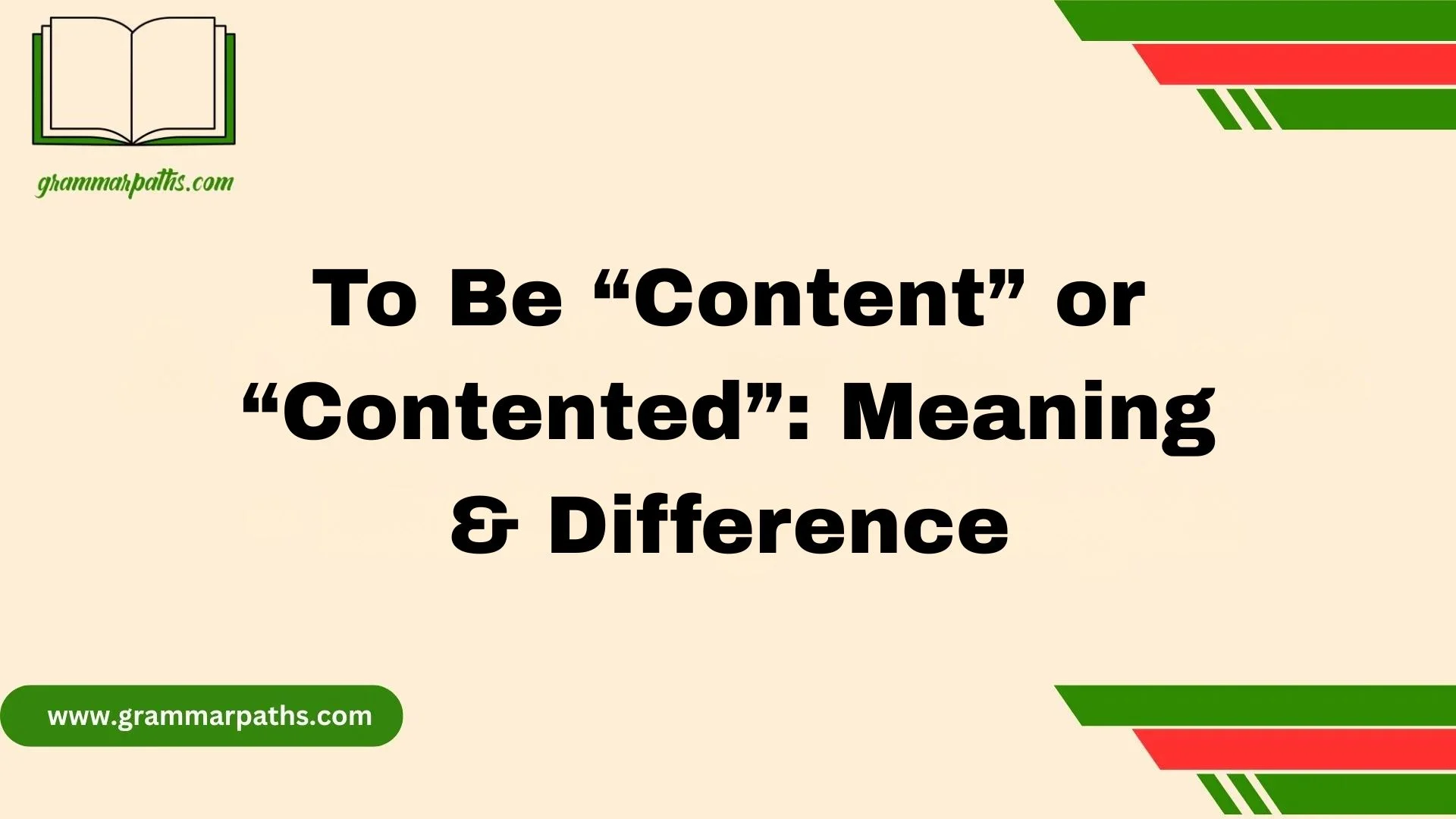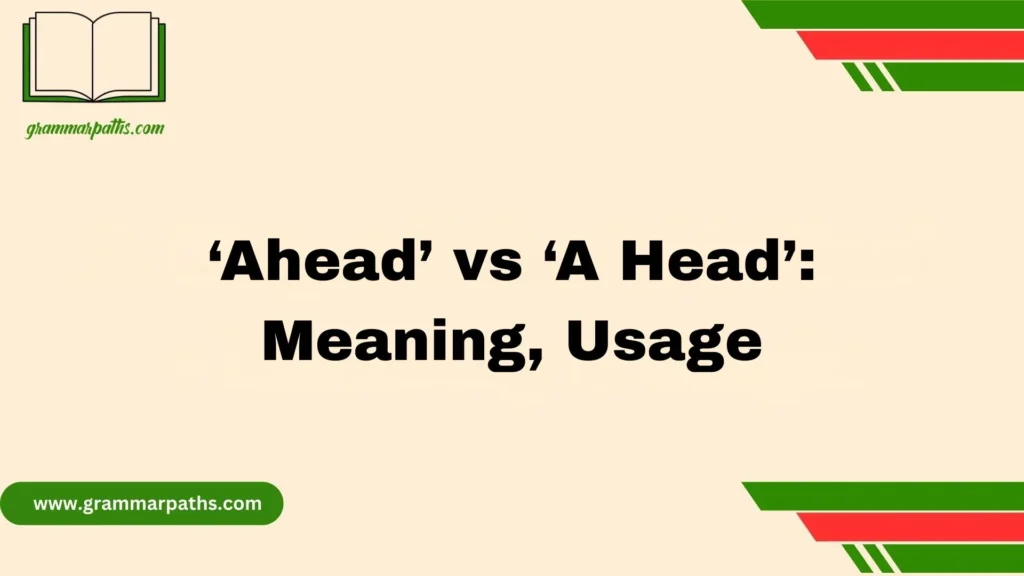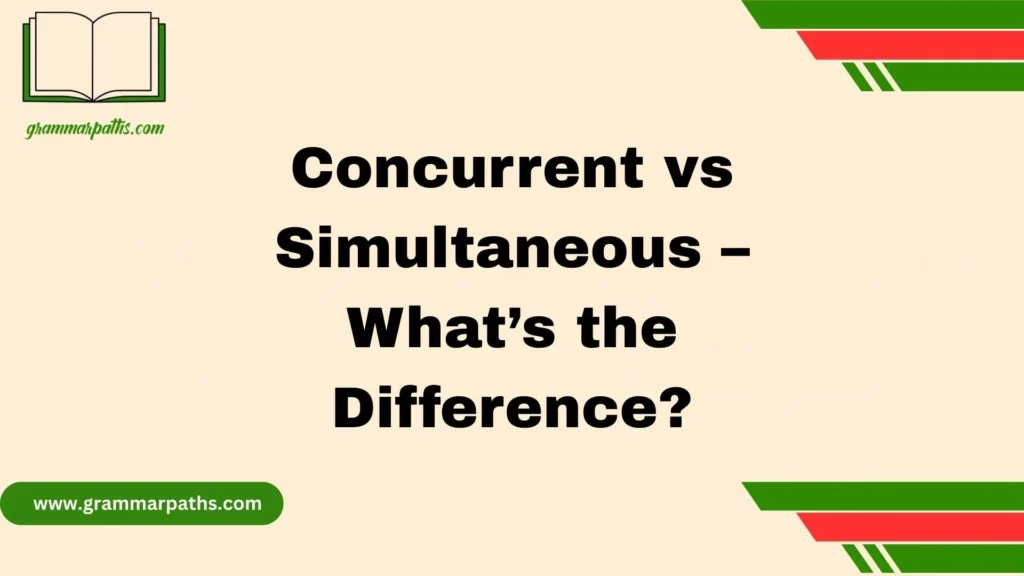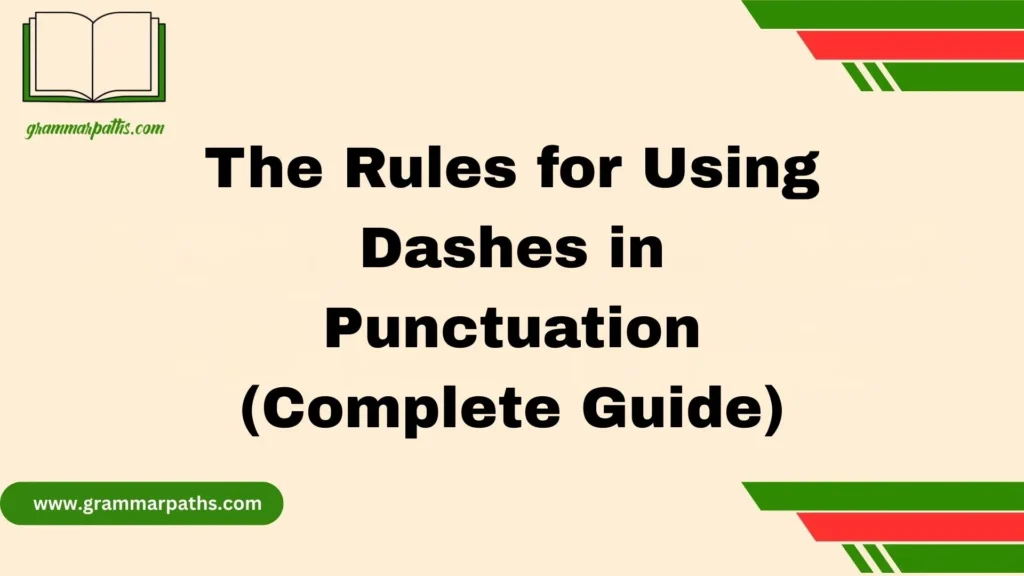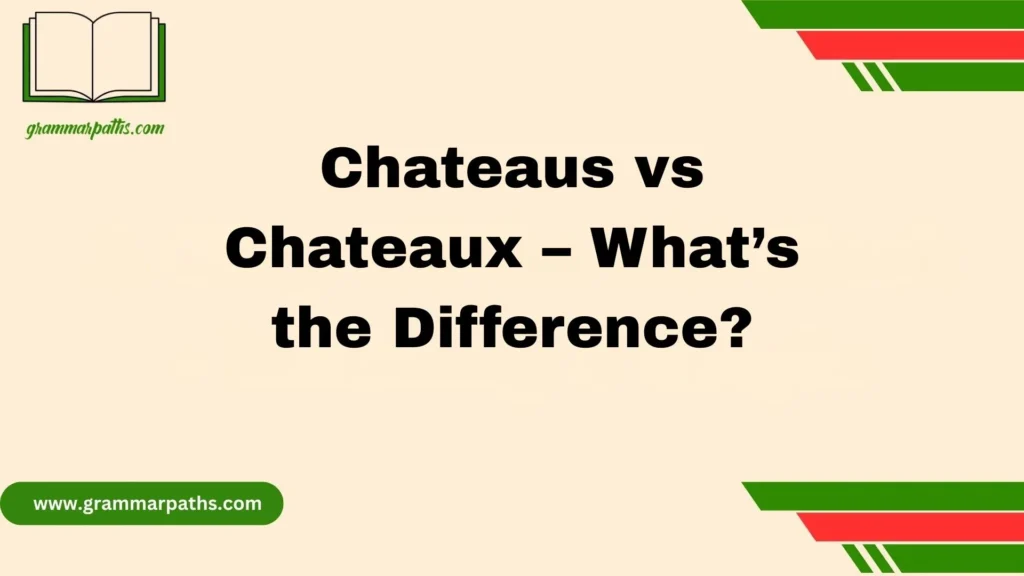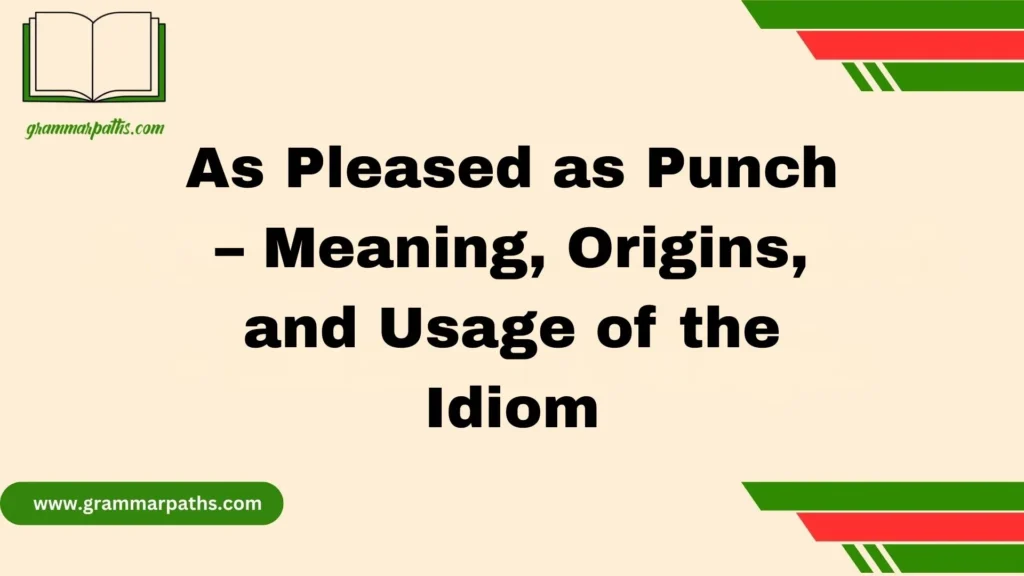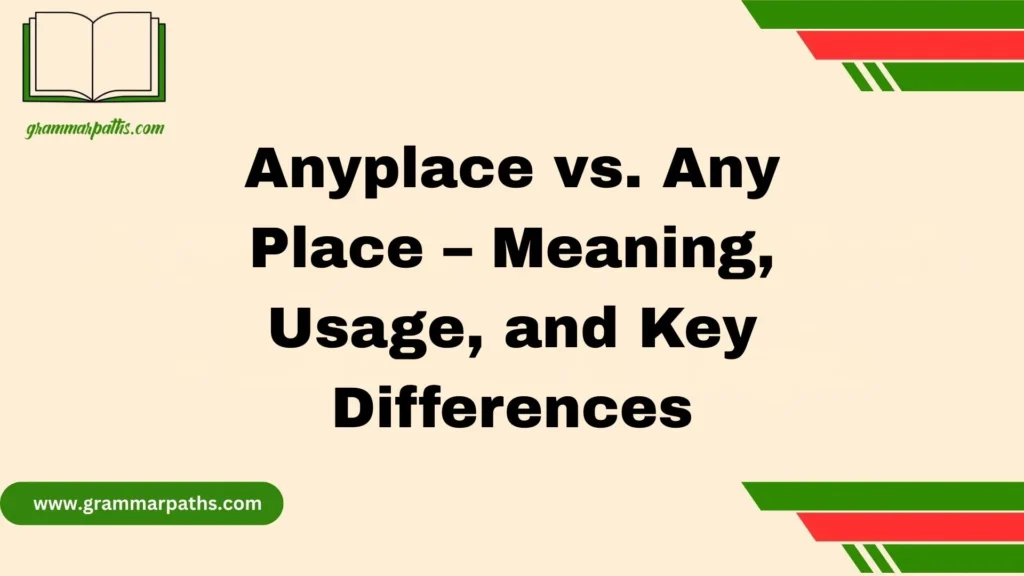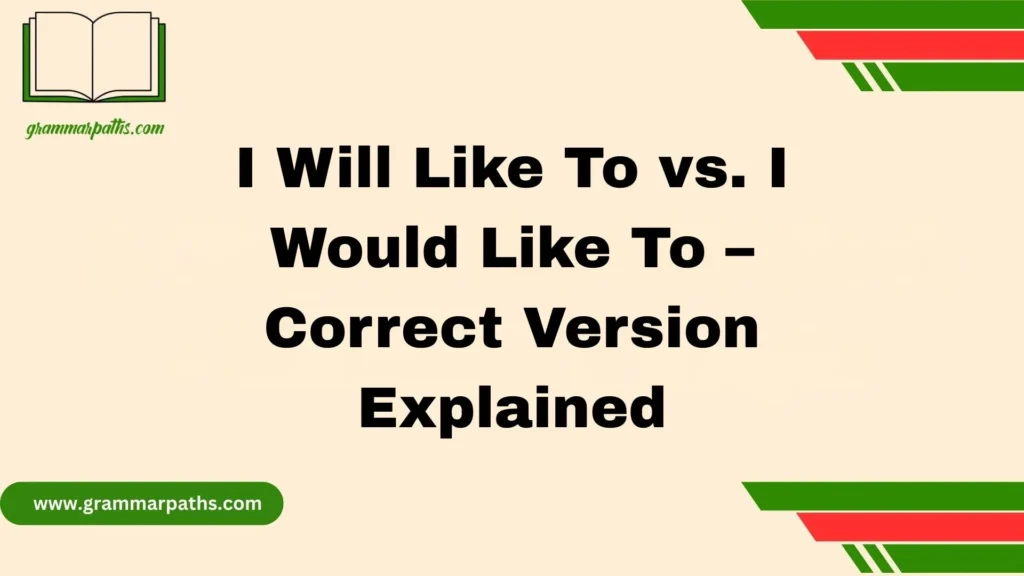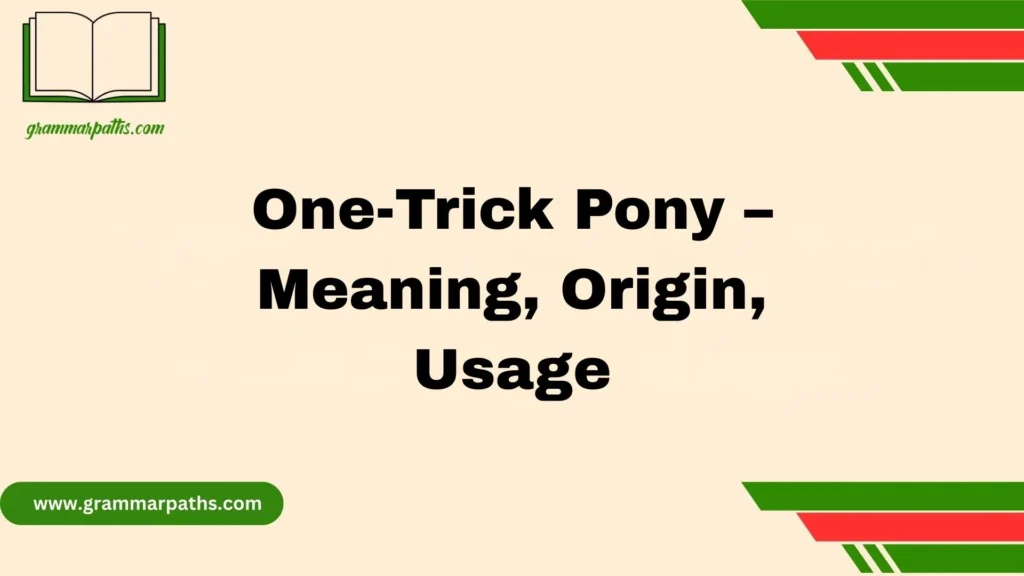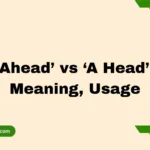The English language is full of words that sound similar but carry different meanings, often leading to confusion in daily use. One such pair is “content” and “contented.” While both words are linked to feelings of happiness, satisfaction, and peace of mind, their usage and tone are not exactly the same. Understanding the difference between content and contented can help improve your communication skills, especially in writing and speech.
The word “content” is more neutral and formal, often describing a calm sense of acceptance or being satisfied with what one has. On the other hand, “contented” conveys a warmer, more personal state of happiness and inner peace. For example, someone may feel content with their job, but contented when spending time with loved ones. This subtle shift in meaning affects the tone of a sentence and the way a reader or listener perceives it.
By exploring the definition, examples, and grammatical usage of both words, we can gain a clearer understanding of when to use content vs contented. This not only helps in avoiding common mistakes but also enhances your ability to express emotions with precision.
The Dual Nature of “Content”
One reason confusion arises is that “content” wears more than one hat in English. It can act as a noun, an adjective, or even a verb depending on how it’s used.
- As a noun: It refers to information, material, or subject matter.
- Example: “The content of the lecture was fascinating.”
- As an adjective: It describes a person’s emotional state—feeling satisfied or at ease.
- Example: “She felt content with her progress.”
- As a verb (rare): To make someone satisfied.
- Example: “He contented himself with a modest meal.”
This flexibility is useful, but it also creates potential for misunderstanding. A listener must rely on context—and sometimes on pronunciation—to know what you mean.
“Content” as an Emotional State
When used as an adjective, “content” signals calm, quiet satisfaction. It doesn’t suggest fireworks of joy or overwhelming happiness. Instead, it’s about being at peace with what you have.
- “I’m content with a cup of tea and a good book.”
- “After the exam, she felt content with her effort, no matter the outcome.”
Notice how “content” often applies to momentary or situational satisfaction. It describes a state that might shift depending on circumstances. If dinner was satisfying, you might say, “I’m content.” Tomorrow, you could crave something different.
This subtlety sets it apart from “contented,” which leans toward deeper or more enduring satisfaction.
The Grammar and Pronunciation Factor
A hidden complication lies in how “content” sounds. The word’s stress pattern changes its meaning:
| Word | Stress | Meaning | Example |
| CON-tent | First syllable stressed | Noun (information, material) | “The website’s content was updated.” |
| con-TENT | Second syllable stressed | Adjective (satisfied) | “She seemed content with the outcome.” |
| con-TENT | Verb | To satisfy | “He contented himself with the result.” |
This shift can trip up learners and sometimes even native speakers. Context usually clears up confusion, but pronunciation remains key.
Understanding “Contented”
“Contented” is a straightforward adjective. It always signals a state of satisfaction, but unlike “content,” it leans toward something deeper, stronger, and more lasting.
- “She was a contented traveler, smiling as the train moved through the countryside.”
- “The child looked contented after a long nap.”
Writers often use “contented” in contexts that emphasize stability or completeness. Where “content” might feel temporary, “contented” often points toward a state of fulfillment that holds steady.
Subtle Differences in Tone and Usage
While both words overlap in meaning, the tone they convey can differ.
| Word | Tone | Typical Context | Example |
| Content | Casual, situational, lighter | Everyday speech, temporary states | “I’m content with this snack for now.” |
| Contented | Deeper, enduring, more formal | Literature, descriptions of moods or lives | “He lived a contented life in the countryside.” |
Think of “content” as short-term satisfaction and “contented” as longer-lasting peace.
“Contently” vs. “Contentedly”
Here’s where things get tricky. People sometimes assume that if we have “content” and “contented,” we must also have “contently” and “contentedly.”
- “Contentedly” is standard and correct.
- “He sighed contentedly after finishing the project.”
- “Contently” exists but is rarely used. Most style guides discourage it.
Why is “contently” avoided? The word feels awkward and has never gained wide acceptance. “Contentedly” flows more naturally and has been the standard for centuries.
A look at usage data shows that “contentedly” appears thousands of times more often in published works, news articles, and literature.
Practical Guidelines for Choosing Between Them
Knowing which word to use doesn’t have to be complicated. Here are quick guidelines:
- Use “content” when describing simple or temporary satisfaction.
- “She was content with the answer.”
- Use “contented” when describing deeper, longer-lasting states.
- “He was a contented father, proud of his family.”
- Use “contentedly” as the standard adverb.
- “The cat purred contentedly on the windowsill.”
Case Study: Everyday Speech vs. Literature
- In casual speech, you’re more likely to hear: “I’m content.”
- In literature or formal writing, you might find: “She lived a contented existence.”
Writers often choose based on rhythm, tone, and context.
Common Mistakes to Avoid
Even experienced speakers slip up with these words. Here are pitfalls to steer clear of:
- Confusing noun “content” with adjective “content.”
- Incorrect: “I liked the content of my life.”
- Correct: “I was content with my life.”
- Overusing “contented.”
- Sometimes “content” is simpler and more natural. Saying “I’m contented with lunch” can sound stiff.
- Using “contently” instead of “contentedly.”
- Stick with “contentedly.” It’s the standard form.
Why Precision Matters
Word choice affects not just grammar but also tone and emotional impact. Saying “I’m content” may sound casual and light, while “I’m contented” suggests something fuller and more meaningful.
Consider these examples:
- “She was content with the meal.” → satisfied for now.
- “She was contented with her life.” → long-lasting peace and happiness.
Choosing the right word helps you express yourself more accurately and avoids unintended impressions.
Conclusion
Choosing between “content” and “contented” may seem like a small detail, but it has a big impact on how your message is received. While content leans toward a calm state of acceptance and satisfaction, contented highlights a deeper sense of happiness and fulfillment. Knowing the difference between content and contented helps you speak and write with more clarity, precision, and confidence. Whether in everyday conversation, formal writing, or even literature, the right choice of word makes your communication sound more natural and meaningful.
FAQs
Q1: What is the main difference between “content” and “contented”?
A: “Content” is more neutral, describing acceptance or satisfaction, while “contented” expresses a warmer, happier feeling of peace and fulfillment.
Q2: Can “content” be used as both a noun and an adjective?
A: Yes. As a noun, it refers to material or substance (e.g., book content). As an adjective, it means being satisfied.
Q3: Which word sounds more formal—content or contented?
A: “Content” is more formal and often used in professional or literary contexts, while “contented” feels personal and emotional.
Q4: Can I use “content” and “contented” interchangeably?
A: Not always. While they are related, “contented” usually refers to emotional satisfaction, whereas “content” can also mean simple acceptance.
Q5: Which word should I use in daily conversation?
A: Both are correct, but “contented” is more common in casual speech when describing happiness, while “content” often fits formal contexts.

Emma Brooke is a passionate language expert and contributor at GrammarPaths.com, where she helps learners navigate the complexities of English grammar, idioms, and effective writing. With a strong academic background and years of teaching experience, Emma excels at turning tricky grammar rules into simple, practical lessons that readers can easily grasp.
